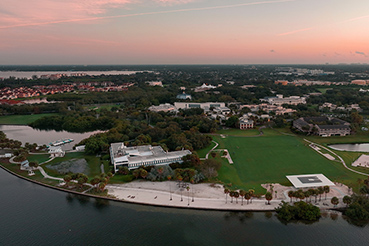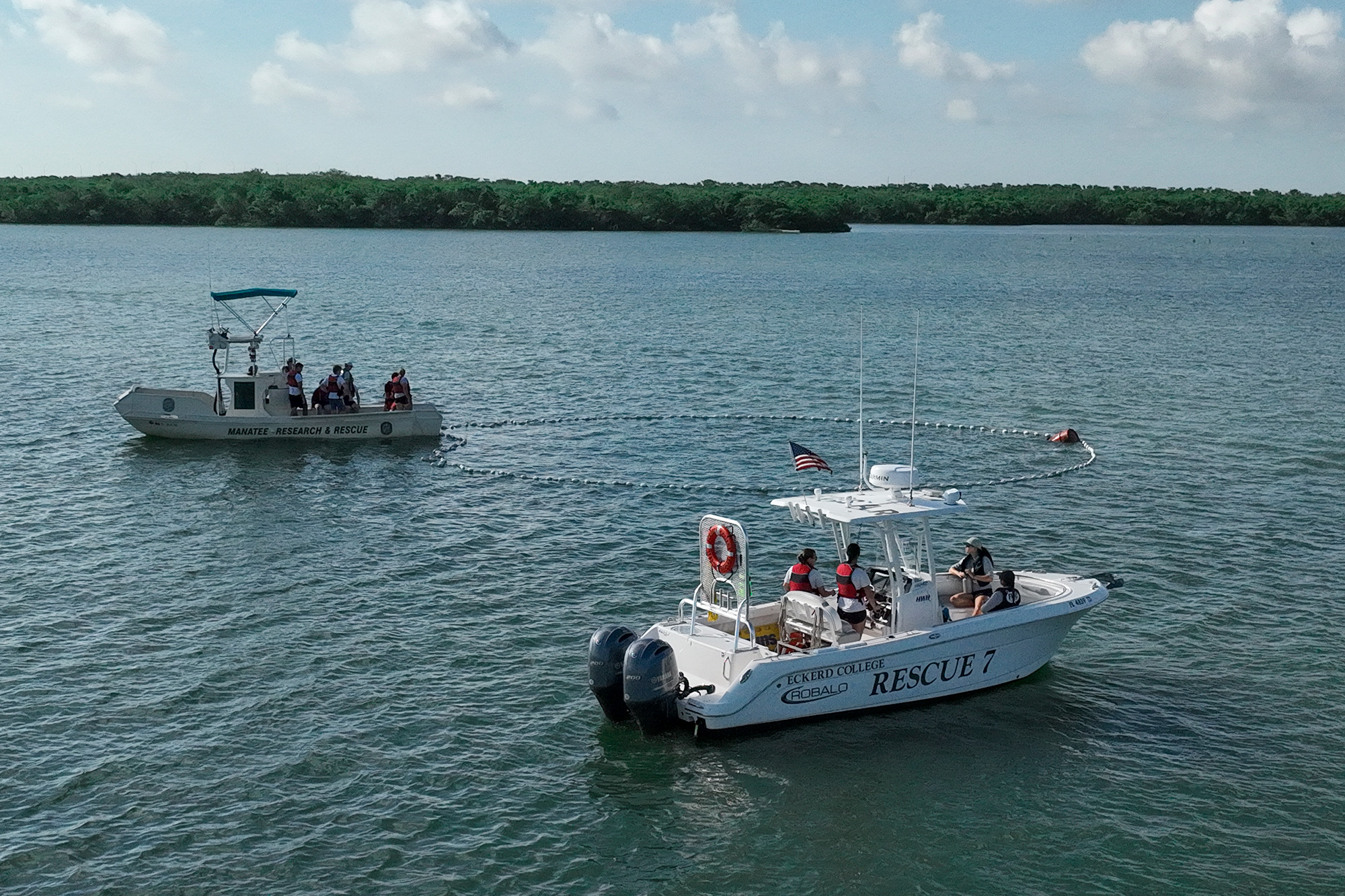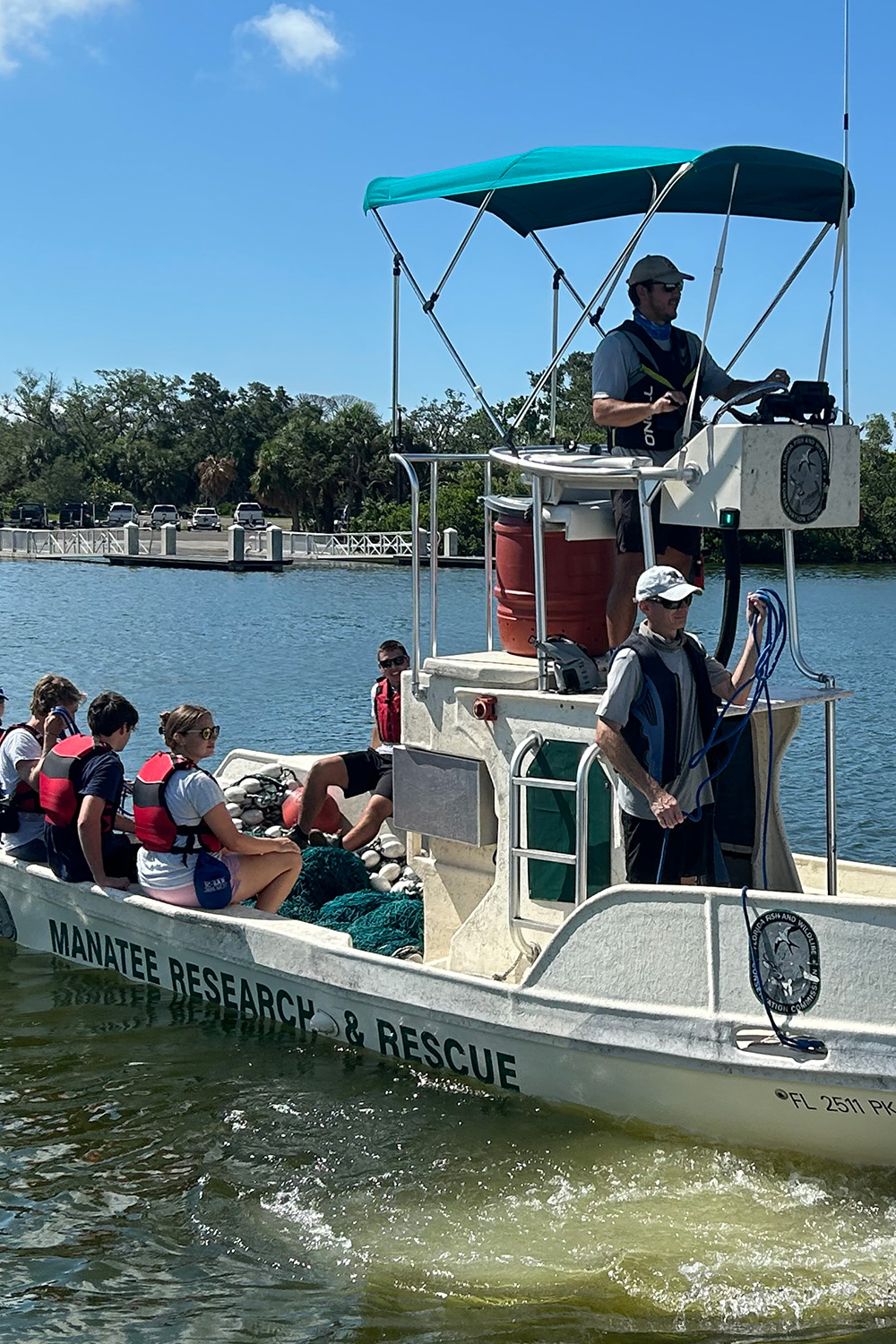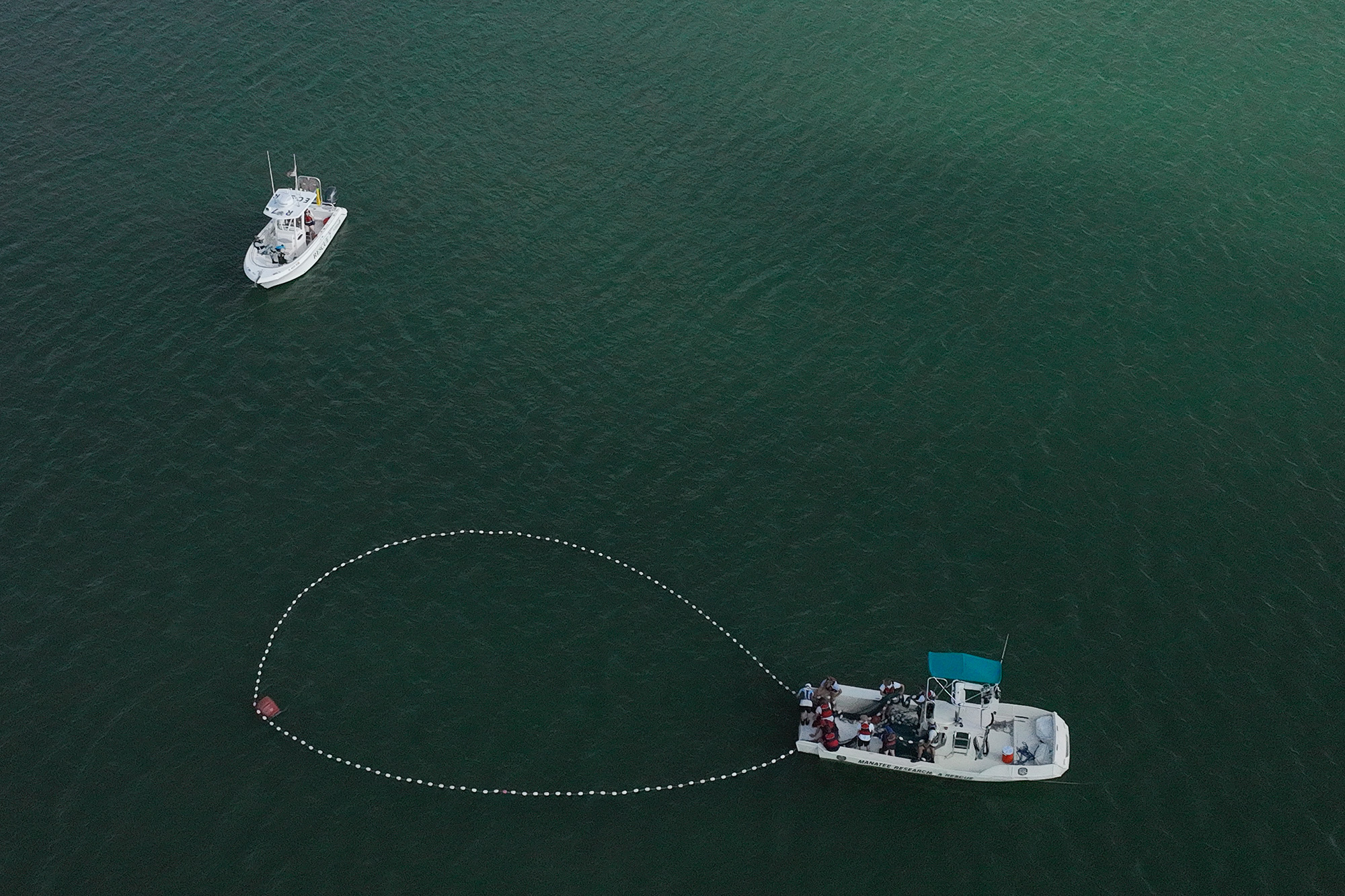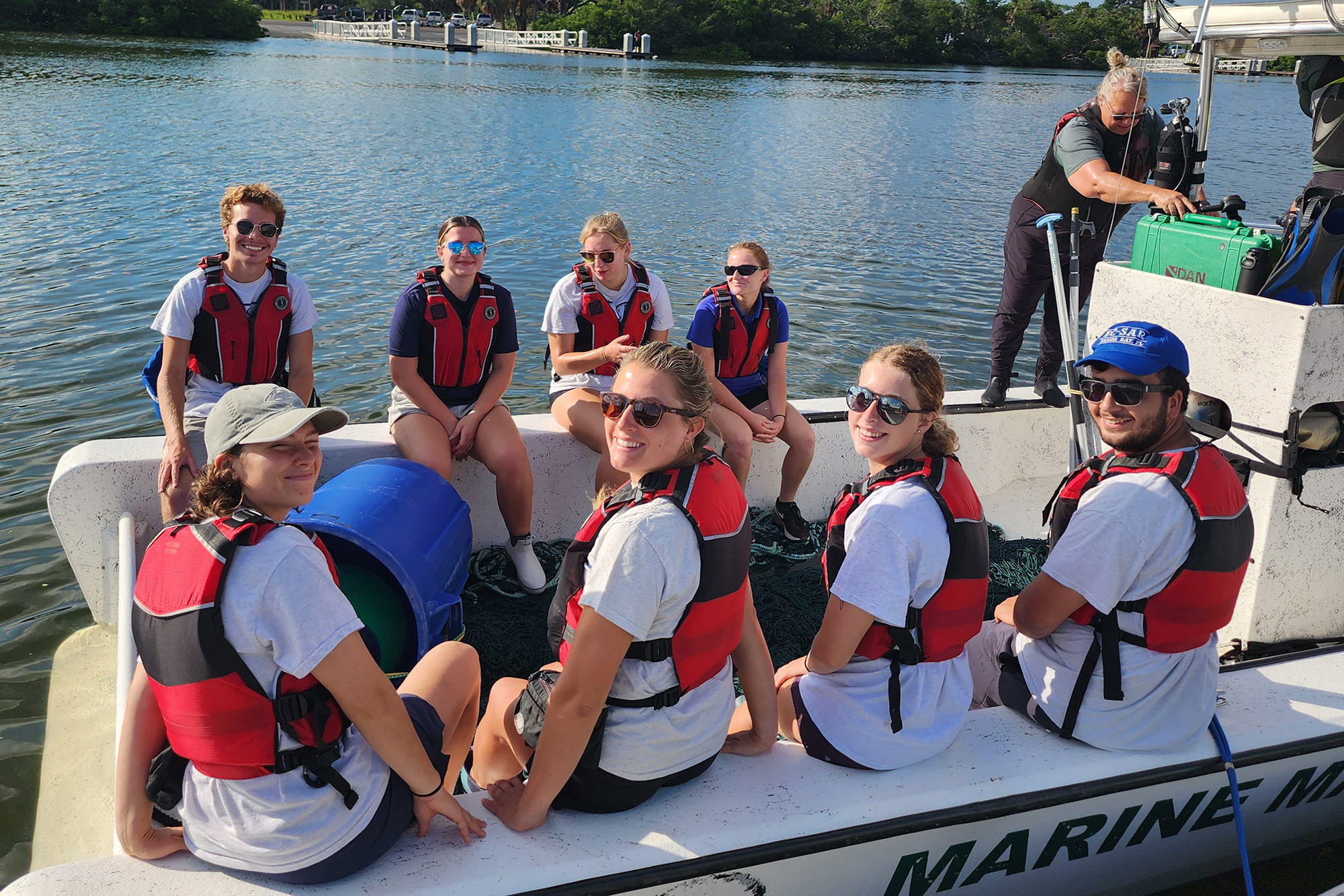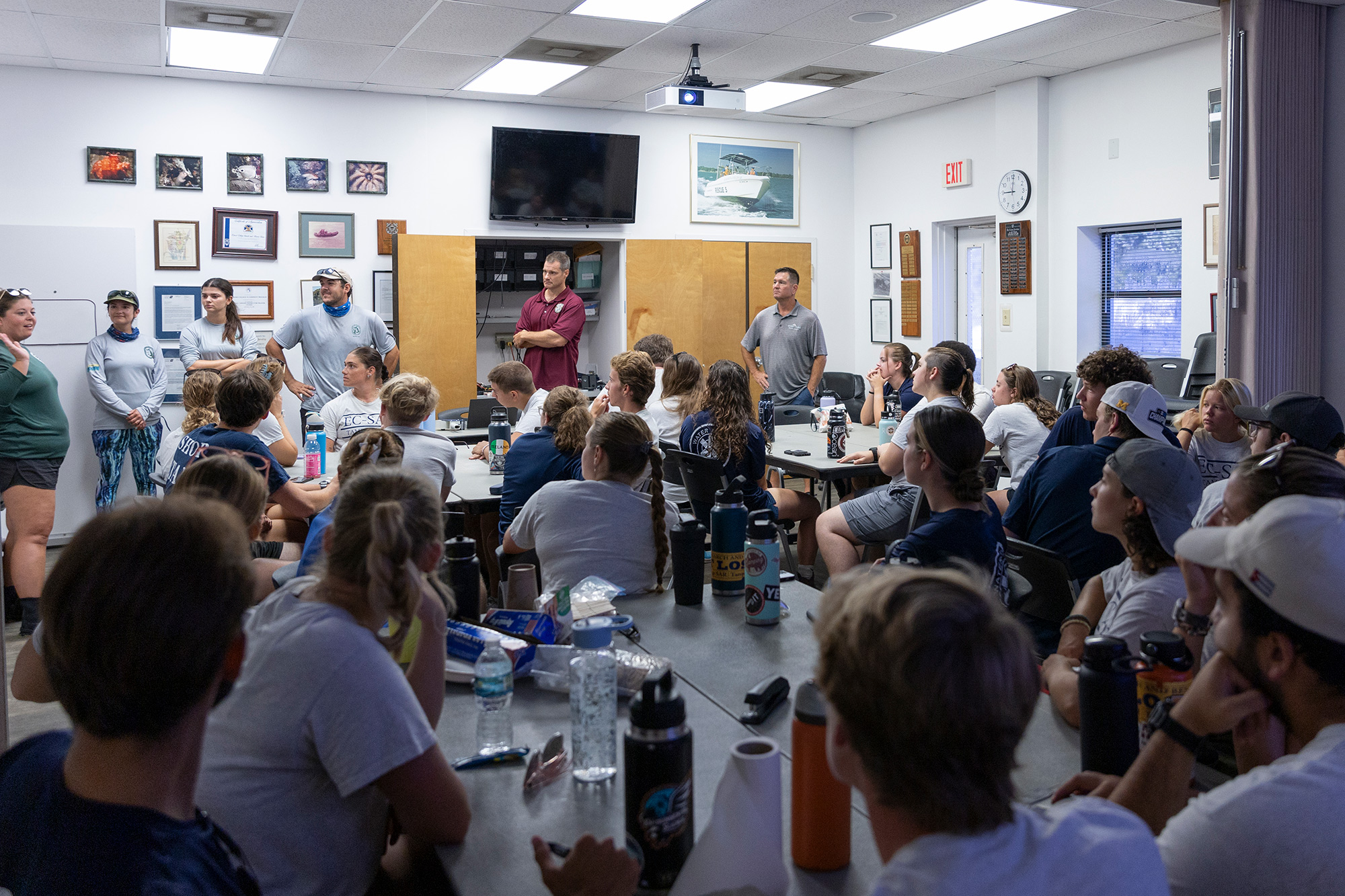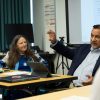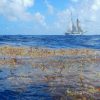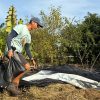For nearly 15 years, students from the Eckerd College Search and Rescue Team have been helping the Florida Fish and Wildlife Conservation Commission locate manatees, dolphins or whales that were in distress or had died in local waters.
The EC-SAR team, led by Ryan Dilkey ’98, Eckerd’s Associate Director of Waterfront, typically provided the FWC with detailed locations of the animals. When FWC crews arrived on scene, they captured the animals and loaded them in their boats.
But in May, Eckerd’s role was kicked up a notch. The College announced an expanded collaboration with the FWC that will, for the first time, include training Eckerd students to provide more detailed assistance in future rescues, including helping to capture and transfer the sick or injured animals to an FWC boat.
The first of that training took place August 19, when staff from MyFWC Florida Fish and Wildlife and Brookfield Zoo Chicago‘s Sarasota Dolphin Research Program arrived on campus to train more than 40 EC-SAR team members. Eckerd alum Andy Garrett ’99, manatee rescue coordinator for FWC, and Jason Allen ‘01, lab manager for SDRP, led training sessions in the classroom as well as from two boats in Boca Ciega Bay.
Founded in 1971, EC-SAR is the only college maritime rescue team in the country. The expansion of Eckerd’s role in manatee rescues, Dilkey says, “increases offerings to students and expands EC-SAR as a deployable force. If the FWC needs to run nets to retrieve a 1,600-pound manatee, they can call on us to help.”
The goal of the aquatic part of the training was a simulated recovery of a manatee, Dilkey explains. “The task was to set and retrieve the nets that are deployed by the boats, which drive in a specific manner around the specimen, encircle it in the net, and then pull the lines in and bring the manatee or dolphin into the boat.” To simulate a manatee, the FWC team used a large plastic barrel.
“The EC-SAR students are already trained to follow instructions and be good boaters, and they’re able-bodied people, because bringing a manatee on board a boat takes muscle,” Dilkey says. After capture, Dilkey adds, the animals are usually transported to ZooTampa at Lowry Park or SeaWorld Orlando, facilities that have marine mammal veterinary care for injured or distressed animals.
“The training was a great experience, and there’s more opportunities to come for the students.”
One of the EC-SAR students who took part was Ari Bear, a junior marine science student from Hanover, Pennsylvania. She joined EC-SAR in her first year, has participated in at least two manatee rescues, and is now training to be a coxswain.
“It was really interesting to get a feel for how FWC runs their boats and to see what their procedures are,” Ari says. “In middle school I watched a documentary titled Chasing Coral about the disappearance of coral reefs. I knew then I wanted to do something to help the oceans.
But since then I’ve found I want to become an educator and help people in the local fishing and boating community learn more about sustainability.” Ari adds that she has been in Eckerd College Peace Corps Prep Program since her first year.
“Getting hands-on experience and helping to facilitate the partnership with the FWC has been such a blessing. Manatees are a key part of the marine environment, but they’re constantly impacted by boat strikes, climate change, pollution from nutrient runoff and loss of seagrass.
“Any way we can help them and our other local marine animals is vitally important.”

